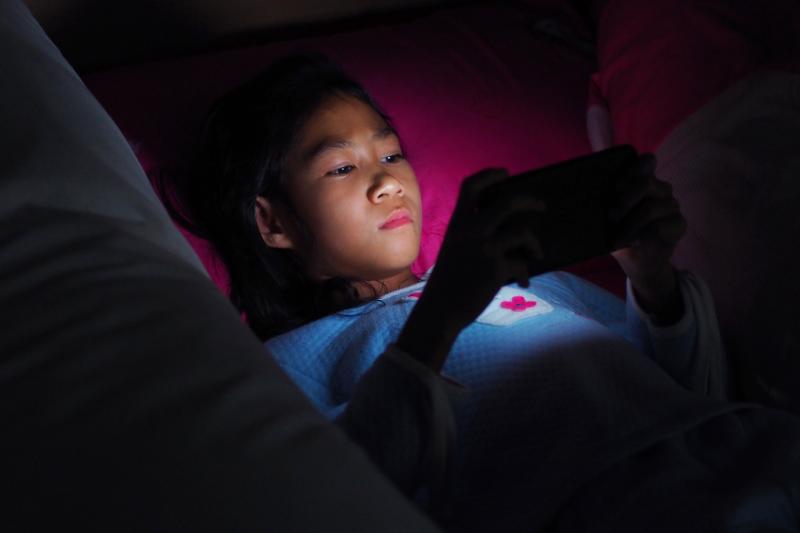 The growing obsession with the internet is one of the reasons leading to sleep deprivation.
The growing obsession with the internet is one of the reasons leading to sleep deprivation.Using electronic devices, especially for social media and browsing the internet, appears to impair multiple dimensions of sleep in children, according to a recent study.
“In a large sample of adolescents in the UK, heavy users of screen media were significantly more likely to sleep less, especially on nights before attending school. The primary factor appeared to be going to sleep later rather than getting up earlier,” said researchers.
“Heavy users also reported longer sleep latency and more mid-sleep awakenings, though these associations were weaker than those for sleep duration,” they added.
In 11,361 children (mean age, 13.77±0.45 years; 50 percent female) who participated in the 2015 wave of the Millennium Cohort Study, more time using screen media correlated with less sleep driven by longer latency and more midsleep awakenings. This effect differed according to the type of media used and the sleep outcome measured. [Sleep Med 2019;66:92-102]
Social media and internet use appeared to exert the strongest negative effect on sleep. For example, heavy users of social media had shorter sleep by nearly an hour than their nonusing counterparts. Heavy internet users, on the other hand, were five times more likely to have shorter sleep on school nights.
Moreover, teens who spent at least 2 hours online were almost three times as likely to sleep for at most 7 hours on a school night (adjusted odds ratio [OR], 2.79, 95 percent confidence interval [CI], 2.36–3.30).
Gaming and watching TV also negatively affected sleep duration. Heavy gamers (≥2 hours) were almost twice as likely as their light-user counterparts to sleep for <7 hours on a school night (adjusted OR, 1.65, 95 percent CI, 1.45–1.87). The same was true for heavy vs light TV use, though with a weaker magnitude of effect (adjusted OR, 1.40, 95 percent CI, 1.24–1.59).
This difference in sleep was driven primarily by a later sleep time. Heavy social media users, for instance, went to bed an hour later than nonusers, while heavy internet users slept 50 minutes later. Staying up past midnight was also more likely to occur in these heavy users. Sleep latency was also greater for heavy users, as was the likelihood of midsleep awakenings.
“Thus, heavy screen media use, especially internet and social media use, could lead to shortened sleep on school nights because heavy users stay up later but still get up at about the same time,” the researchers explained.
Chronotype appeared to play a role in the relationship between screen media use and sleep duration. Adjusting for it as a covariate attenuated the significant effect of gaming, for example.
“These results suggest that part of the association between screen media use and sleep outcomes can be explained by owls filling the time they would already be awake in the evening with screen media activities,” the researchers explained.
However, the delaying effect of internet and social use on sleep remained significant even after adjusting for chronotype.
“[S]creen media time should be limited to a level that does not interfere with sleep; these data suggest that 2 hours or more of each activity is associated with shortened sleep duration, longer sleep latency, and more midsleep awakenings,” the researchers said.
“Limiting social media and internet use may be an especially impactful way to reduce sleep impairments,” they added.